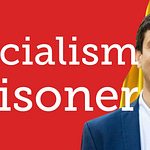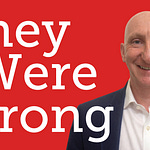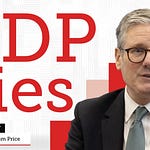In this Institute of Economic Affairs Podcast, Director of Communications Callum Price hosts a discussion with IEA Executive Director Tom Clougherty and Managing Editor Daniel Freeman on Britain's escalating fiscal crisis and the government's response. The conversation examines why UK borrowing costs have reached their highest levels since 1997 - famously dubbed "the highest since Geri Halliwell left the Spice Girls" - making Britain consistently the worst performer among G7 countries for government debt costs.
The panel dissects the three key factors driving this crisis: declining investor confidence in fiscal policy credibility following government U-turns on Winter Fuel Payments and benefit reforms, the Bank of England's continued quantitative tightening programme, and persistently high UK inflation rates. With annual interest payments now reaching £110 billion - five times the entire policing budget and double defence spending - the government faces a potential £25-50 billion fiscal gap. Clougherty explains how this creates a dangerous "fiscal doom loop" where higher borrowing costs force more borrowing, which drives rates even higher. The discussion explores proposed solutions including National Insurance contributions on landlords' rental income, though Freeman warns this could drive more landlords from the market and worsen housing supply. They also examine proposals for windfall taxes on banks' quantitative easing reserves, with Clougherty arguing this resembles "bank robbers' modus operandi" and could increase borrowing costs for ordinary consumers.
The podcast concludes with analysis of Trump's dramatic shift toward state capitalism, including government stakes in Intel and profit-sharing deals with Nvidia. Clougherty highlights how this represents a fundamental departure from free market principles, with Trump explicitly stating he will help companies "willing to make lucrative deals" with his administration. The panel discusses how this personalised industrial policy transforms business-government relations and marks a significant cultural shift in the Republican Party, with formerly mainstream conservative voices now reluctant to criticise state intervention in private markets.















